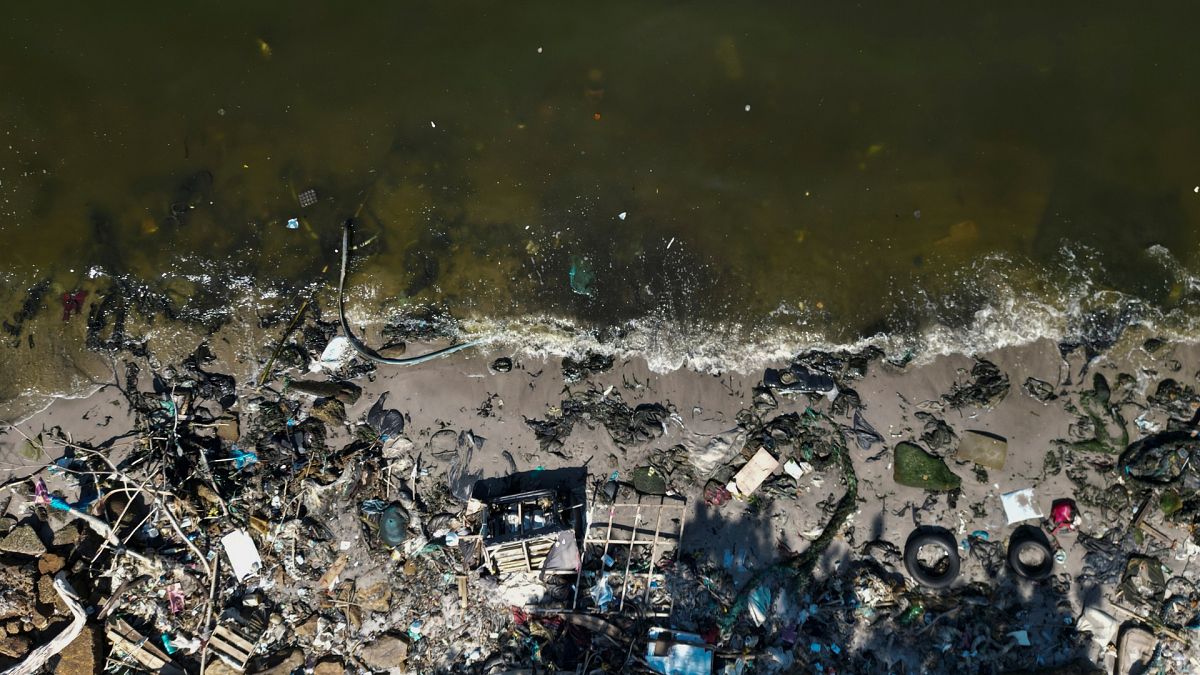Published on
Ministers and representatives from more than 95 countries called for an ambitious agreement from global plastics treaty negotiations at the UN Ocean Conference (UNOC) on Tuesday.
Negotiations for the UN plastics treaty collapsed in late 2024 with nations unable to agree on how best to stop millions of tonnes of plastic from entering the environment each year. The next round of negotiations is due to resume in Geneva, Switzerland, in August.
The declaration, dubbed the ‘Nice Wake-Up Call’, identifies five elements that the signatories say are key to achieving a global agreement that is “commensurate with what science tells us and our citizens are calling for”.
They include a full lifecycle approach, including: plastic production, phasing out chemicals of concern and problematic products, improvements to product design, effective means of implementation, and incorporating provisions that will allow for a treaty that can evolve.
“A treaty that lacks these elements, only relies on voluntary measures or does not address the full lifecycle of plastics will not be effective to deal with the challenge of plastic pollution,” the Nice Wake-Up call reads.
French Minister for Ecological Transition Agnes Pannier-Runacher told the ocean summit in Nice that the declaration sends a “clear and strong message”.
Countries need to find common ground on plastic pollution
More than 200 nations met in South Korea last year for what was meant to be a final round of talks on a landmark agreement to tackle global plastic pollution.
But following two years of negotiations, these talks ended without a final treaty after deep divisions formed between countries calling for plastic to be phased out and oil-producing nations. One of the most contentious points was whether there should be a commitment to cut how much plastic is produced or whether waste can be reduced through recycling efforts.
Pannier-Runacher told journalists at UNOC on Tuesday that comprehensive measures covering the full lifecycle of plastics are needed.
“Better waste management and recycling will not help solve the problem. This is a lie.”
The declaration represents a united front from those countries pushing for an ambitious treaty ahead of the resumed negotiations.
Jessica Roswall, EU Commissioner for Environment, Water Resilience and a Competitive Circular Economy, urged countries to approach the resumed negotiations in August “through dialogue and with willingness to find common ground”.
Tonnes of plastic are dumped into our oceans each year
With talks in Nice centred around ensuring oceans are protected, an ambitious plastics treaty is key to this goal.
“Every year, over 400 million tonnes of plastic is produced worldwide – one-third of which is used just once,” Secretary-General Antonio Guterres said as UNOC opened on Monday. “Every day, the equivalent of over 2,000 garbage trucks full of plastic is dumped into our oceans, rivers, and lakes.”
Plastic production is expected to triple by 2060, but currently, just 9 per cent is recycled around the world. Around 11 million tonnes of plastic waste finds its way into the ocean each year, and plastic waste makes up 80 per cent of all marine pollution.
Andres del Castillo, senior attorney at the Center for International Environmental Law, says the Wake-Up Call should be a “floor, not a ceiling”.
“For the Global Plastics Treaty to succeed, Member States must move beyond vague promises and define how they are going to deliver, including through clear, legally binding measures and a human rights-based approach.
“Come August in Geneva, political statements will not be enough. We must see Member States stand up to petrostate and fossil fuel interests on the floor of the negotiations. Their actions will speak louder than words.”

